Who goes sea swimming in January?
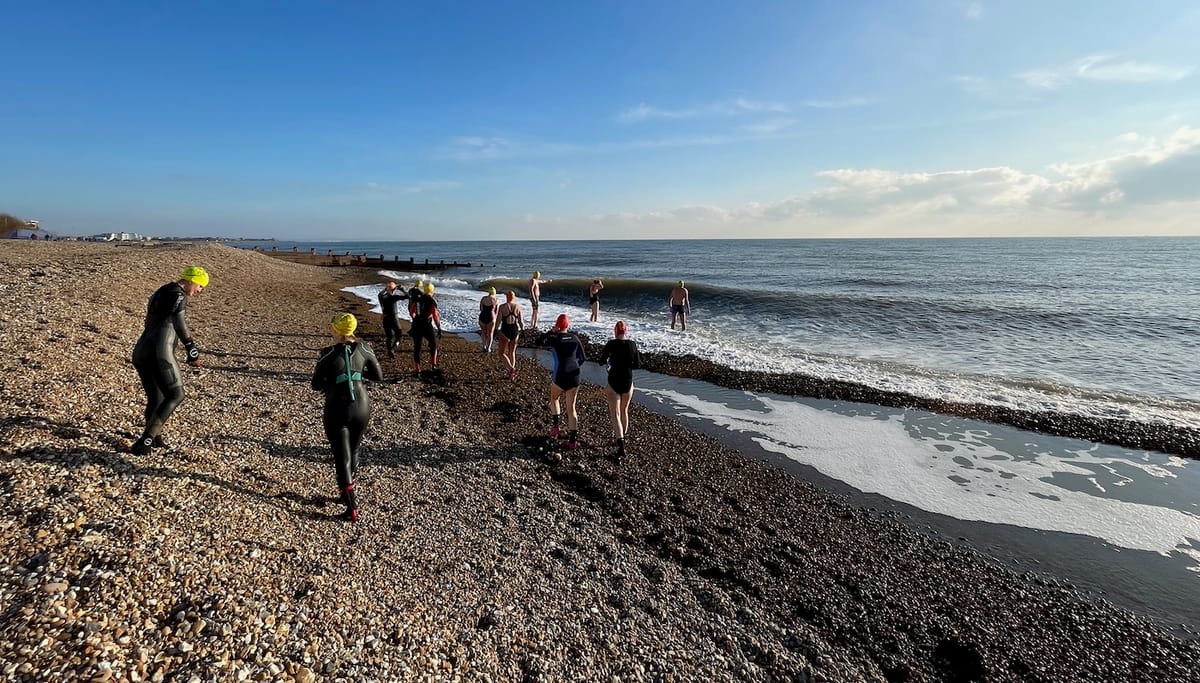
AS THE cold snap persists and daytime temperatures barely edge above zero, most of us wrap up in thermal layers to take a few lungfuls of cold air before scuttling back to central heating.
But there are people, who can be glimpsed on the beach, who take a very different view.
The members of Eastbourne Sea Swimmers are undeterred by the deep chill, continuing to plunge in, whatever the temperature.
Among their number are Channel swimmers, people who find it helps their mental health and an 87-year-old who started sea swimming at the end of the war.
I joined them at their Saturday swim (staying on the beach in a very warm coat, obviously). Walkers on the promenade, swaddled in warm coats and hats, paused by the railings to watch in wonder as the swimmers removed layers of clothing.
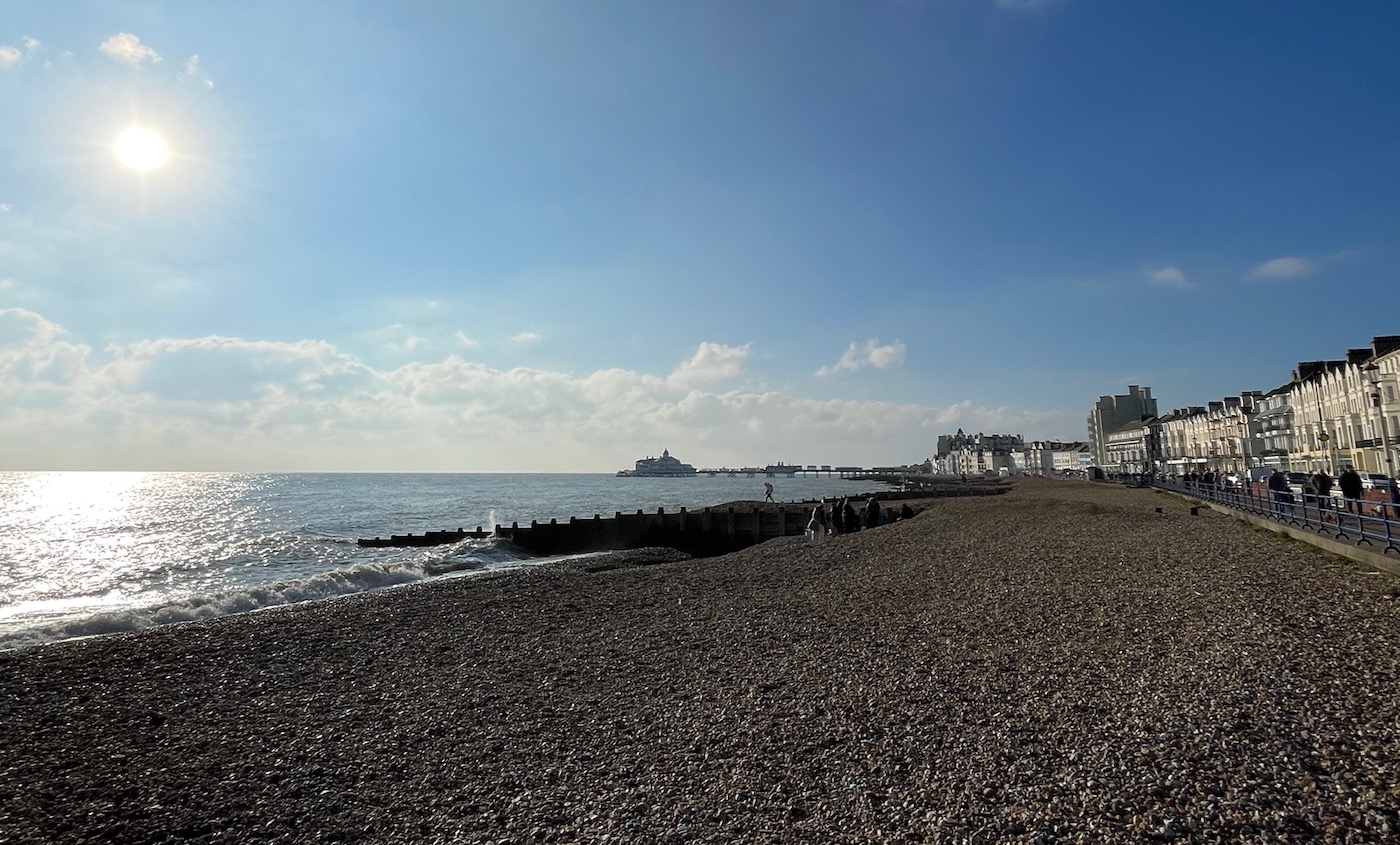
The sky was blue, the wind was light, the sea looked gentle – but the air temperature was 3C and the water temperature was about 9C. In August, it’s about 20C.
The group, which started 25 years ago, has swimmers ranging in age from 20s to late 80s. They launch into the waves from the beach near the Langham Hotel, east of the pier, every weekend.
I am told the sea temperature is at its coldest in February or March, so it’s not even the chilliest at the moment, despite minus temperatues at night and deep morning frosts.
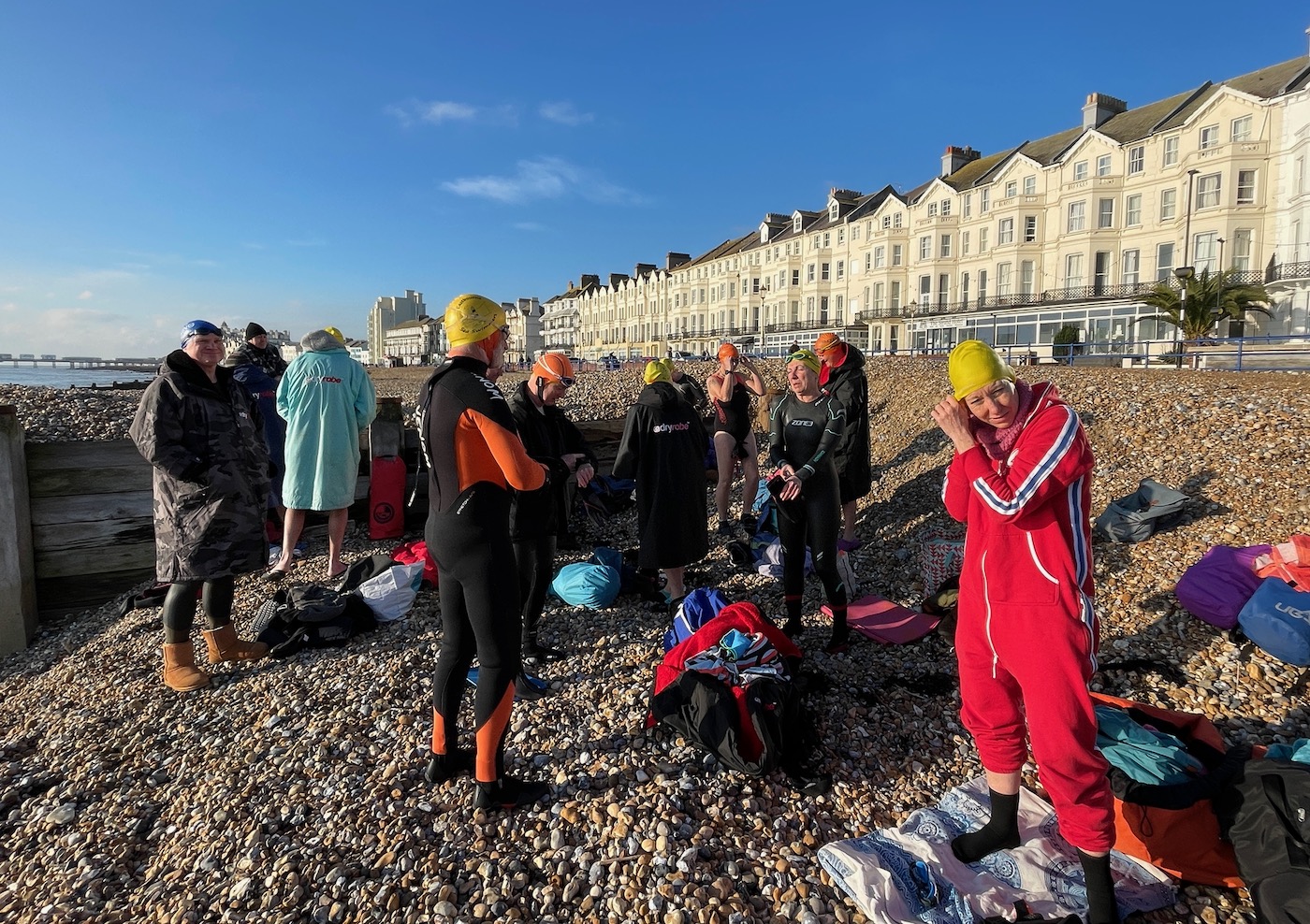
Chris Brooks, 70, is one of the founders of the group. She prepared to go in for about 40 minutes with her neoprene suit, gloves and socks – swimming to the pier and back.
Why does she do it? “It is freedom!” she declared, laughing. “It’s exciting, fun and good for you. Also, it’s free! People come for mental health reasons or physical health. I love the social side – that's quite important to me.”
Her husband Ray Blount is 87. He could pass for 20 years younger. Ray was not going in; he’s waiting until “it’s a bit warmer” but he swims three times a week in the pool.
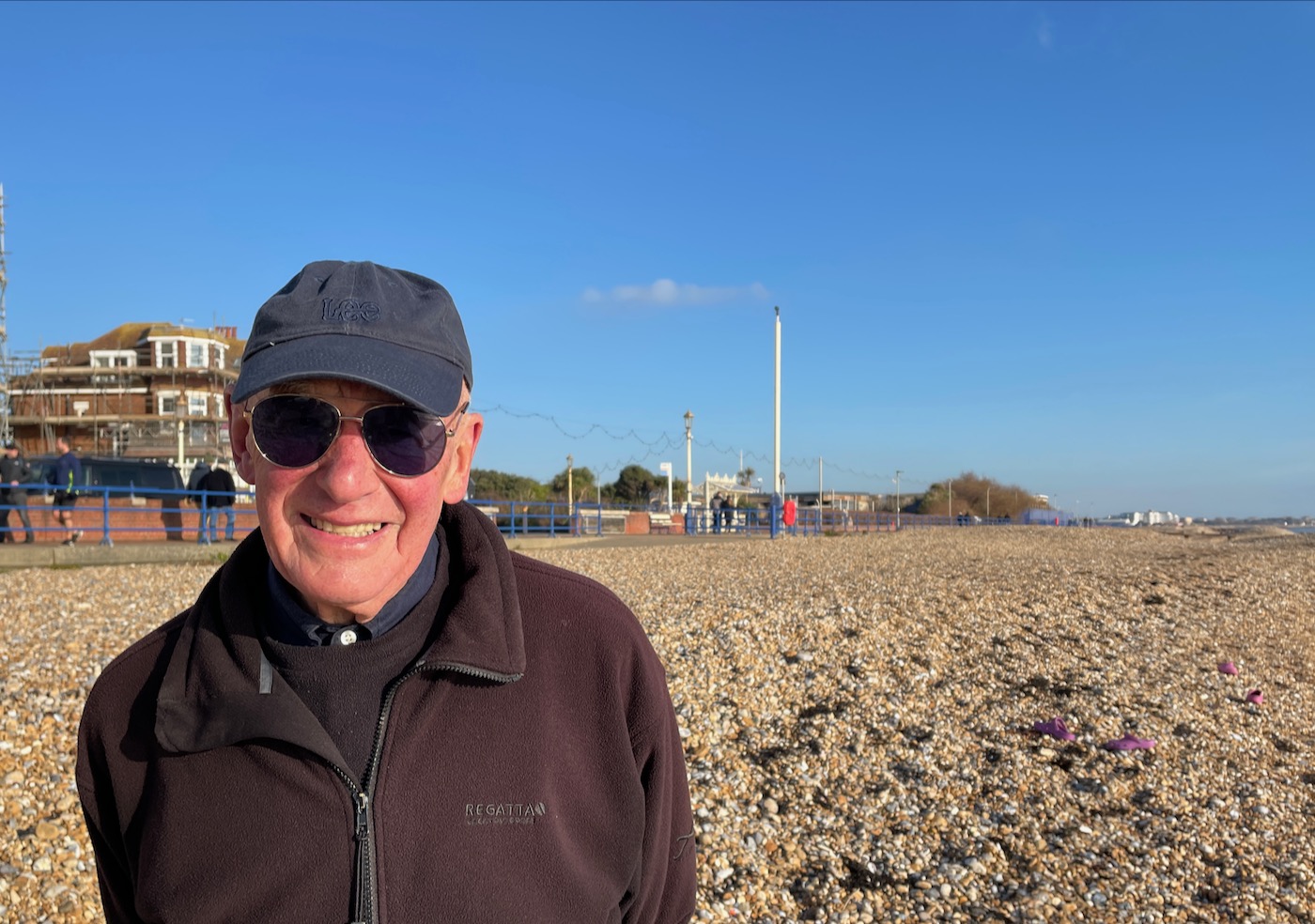
A retired police officer and solicitor, Ray (above) started sea swimming in Brighton when he was nine in 1944, after the beach had been re-opened towards the end of the war.
“It’s good fun. The worst thing is getting a wetsuit off in the cold wind. But it is habit forming,” he said.
Electrician Craig Kircher, 47, is so addicted, he is planning to swim the Channel in July 2024. It’s 21 miles from Dover but swimmers usually swim much further due to the currents.
He considers his current weekly schedule of two or three sessions in the pool and twice in the sea as his base training. The ‘real’ training starts in October.
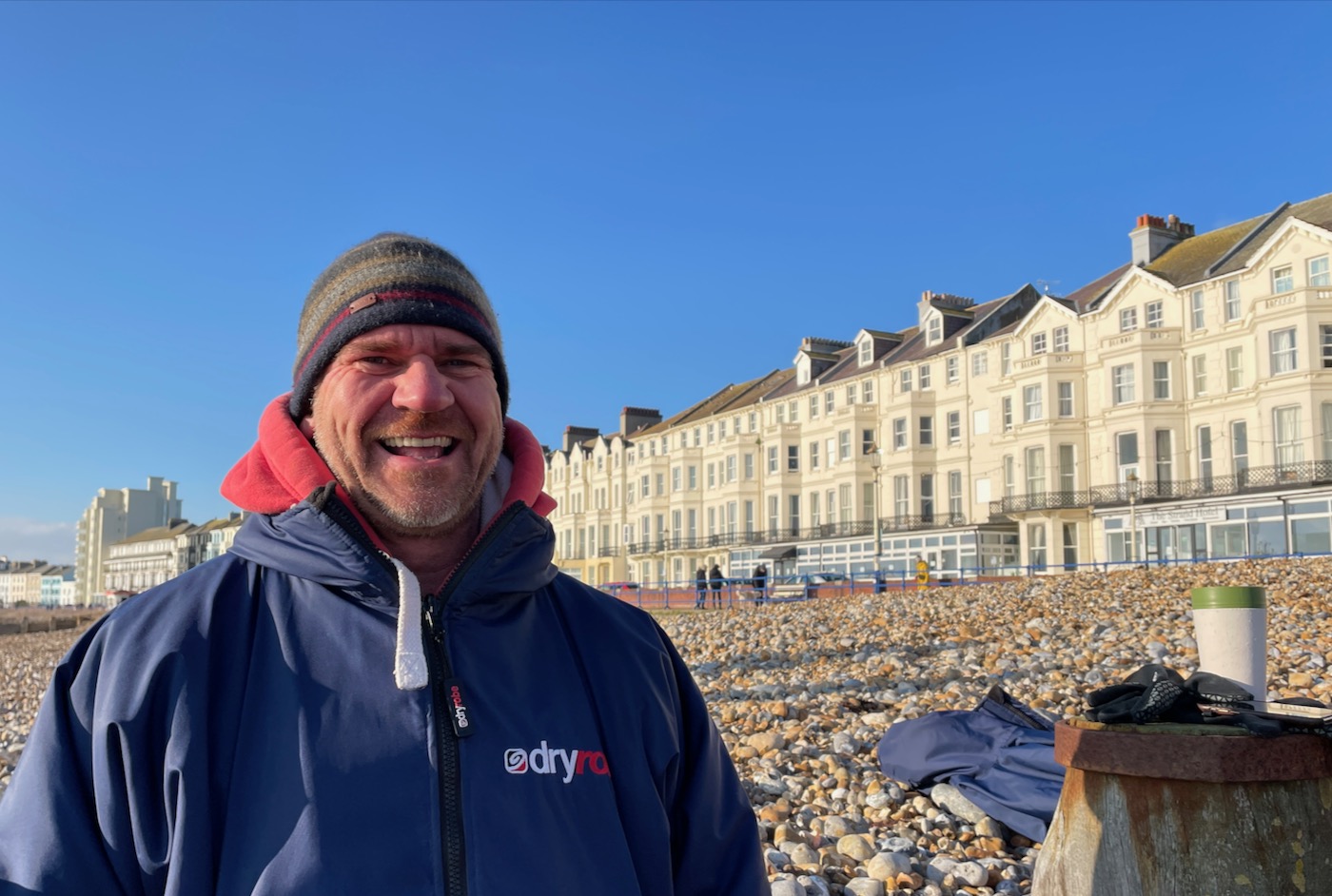
Craig (above) has taken part in Ironman triathlon events which involve a swim, cycle ride and a marathon. But he wanted a further challenge.
“I wanted to do the Channel before my 50th birthday. It’s the challenge of it and the buzz you get from training. It is a bit daunting, but I really like the training – it gives me a goal and something to strive for,” he said.
“I actually like the cold! Then when you warm up afterwards, you get a euphoric feeling. It has definitely benefited me mentally. If I didn’t go in swimming for a few weeks, I'd really notice it.”
More people have climbed Mount Everest (around 6,000 up to December 2021) than have swum the Channel (around 2,300 solo swims). And three of those who have swum the Channel are in Eastbourne Sea Swimmers.
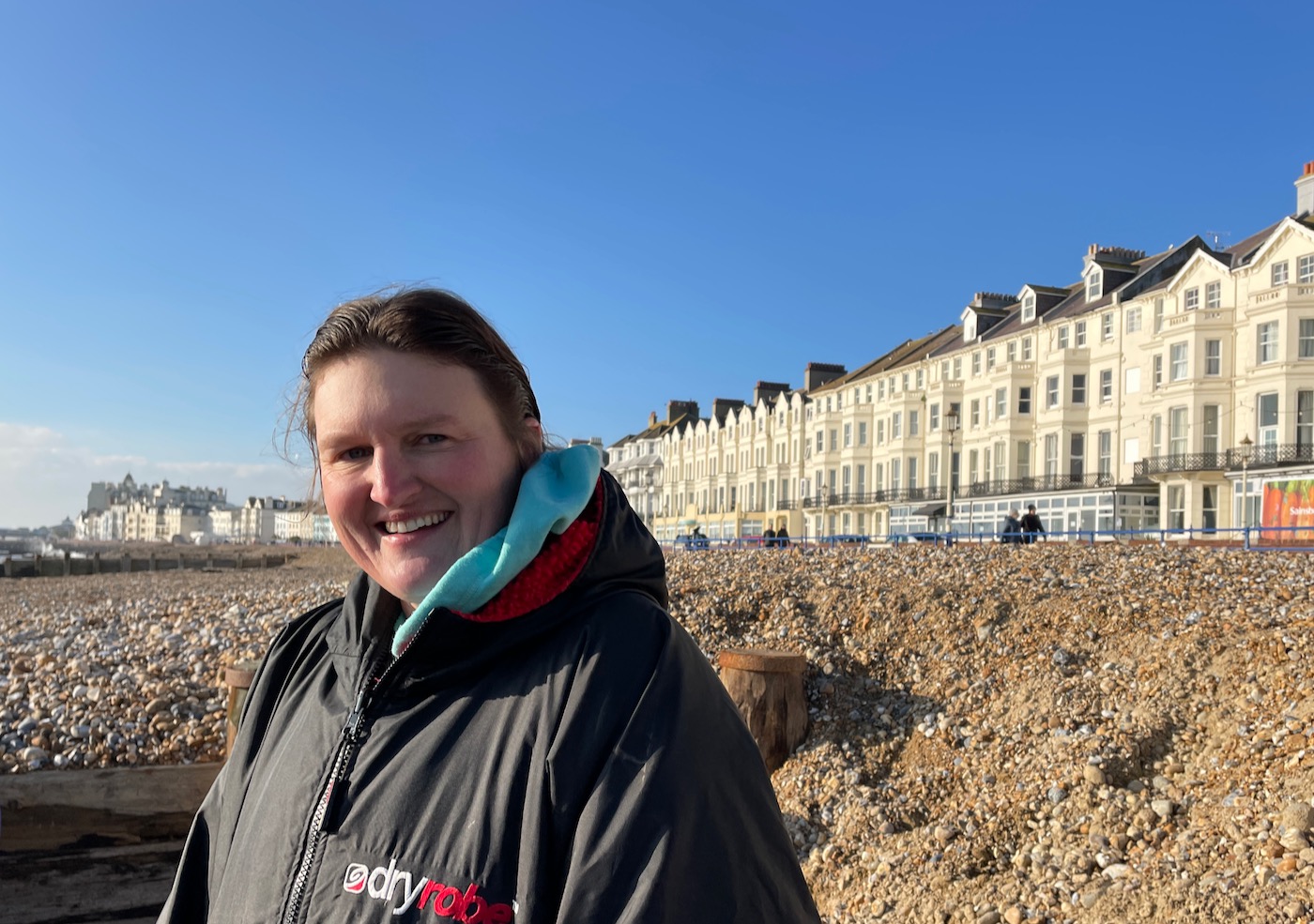
One of them is music teacher Holly Manktelow, 42, (above) who swam the Channel in July last year in 17 hours 22 minutes.
As she wrapped herself up after the swim and sipped a warm drink, she joked: “I generally enjoyed the first 13 hours!”
Most of the pupils at Seaford Head School where she works thought it was cool, although one girl kept asking her: why? It’s a good question.
She said: “I was friends with someone who had swum the Channel so I thought I’d like to try. I would do it again – I really enjoyed it.” She’s hoping to take part in a Channel relay swim in two years.
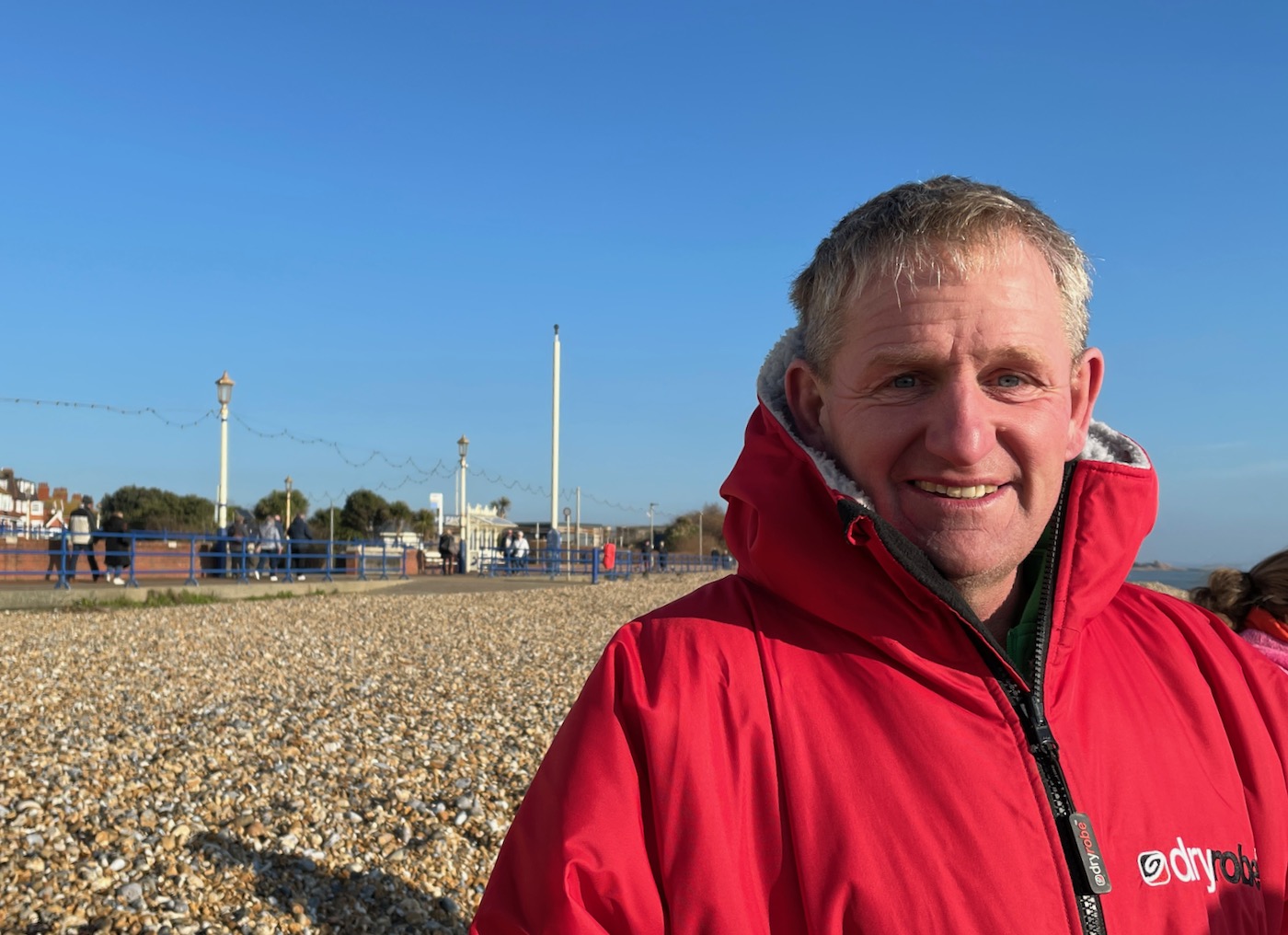
Steve Delea, 56, a scaffolder (above), started sea swimming three years ago when injuries prevented him from continuing to run.
“I’ve always liked to challenge myself. It’s the waves and the cold – it’s almost spiritual being in raw nature. I feel so much better in terms of mental health – the difference is incredible,” he said.
Steve prefers to swim without a wetsuit to increase the challenge. He goes in for about 20 minutes in winter but for an hour or more in late spring and summer. “It gives me a sense of wellbeing”, he said, shivering slightly as he drank from his flask.
Karin Morrison, 51, started sea swimming during the first lockdown in 2020 because the pool was closed. The experience hooked her – and also changed her life.
She started collecting plastic litter left on the beach. As a result, she started looking for non-plastics to use in her bathroom but couldn’t find anything.
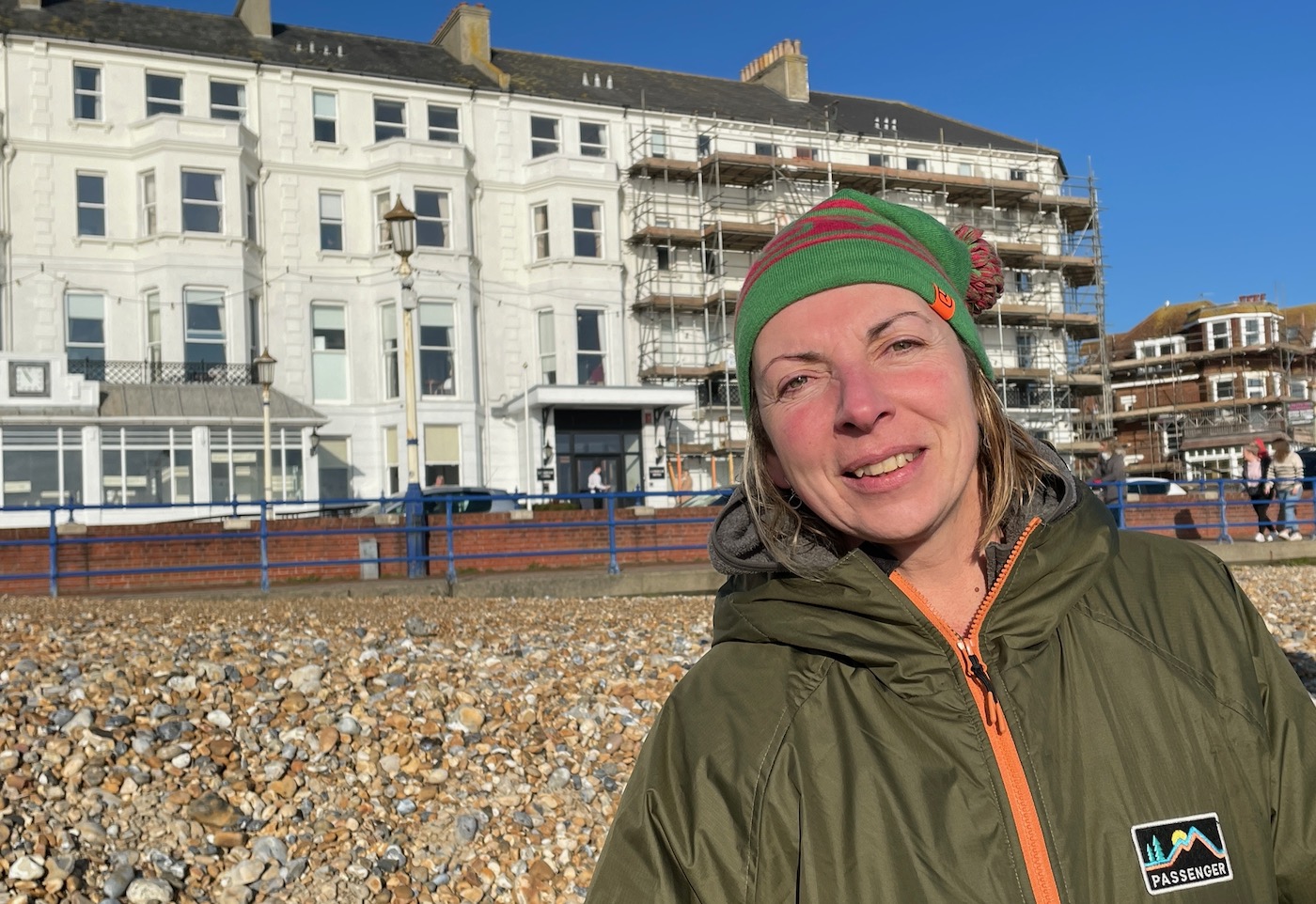
So Karin (above) started Ecohaven, a business selling sustainable eco-friendly personal care products such as toothbrushes, hairbrushes and shavers.
She said: “When you’re in the sea, the rest of life recedes. It was definitely a help to me when I was going through a bad patch. When you go into cold water, you don’t think about anything else and you have to concentrate on your breathing – it's quite meditative.
“Everyone here is very encouraging and it’s great to have a chat on the beach afterwards and be sociable.”
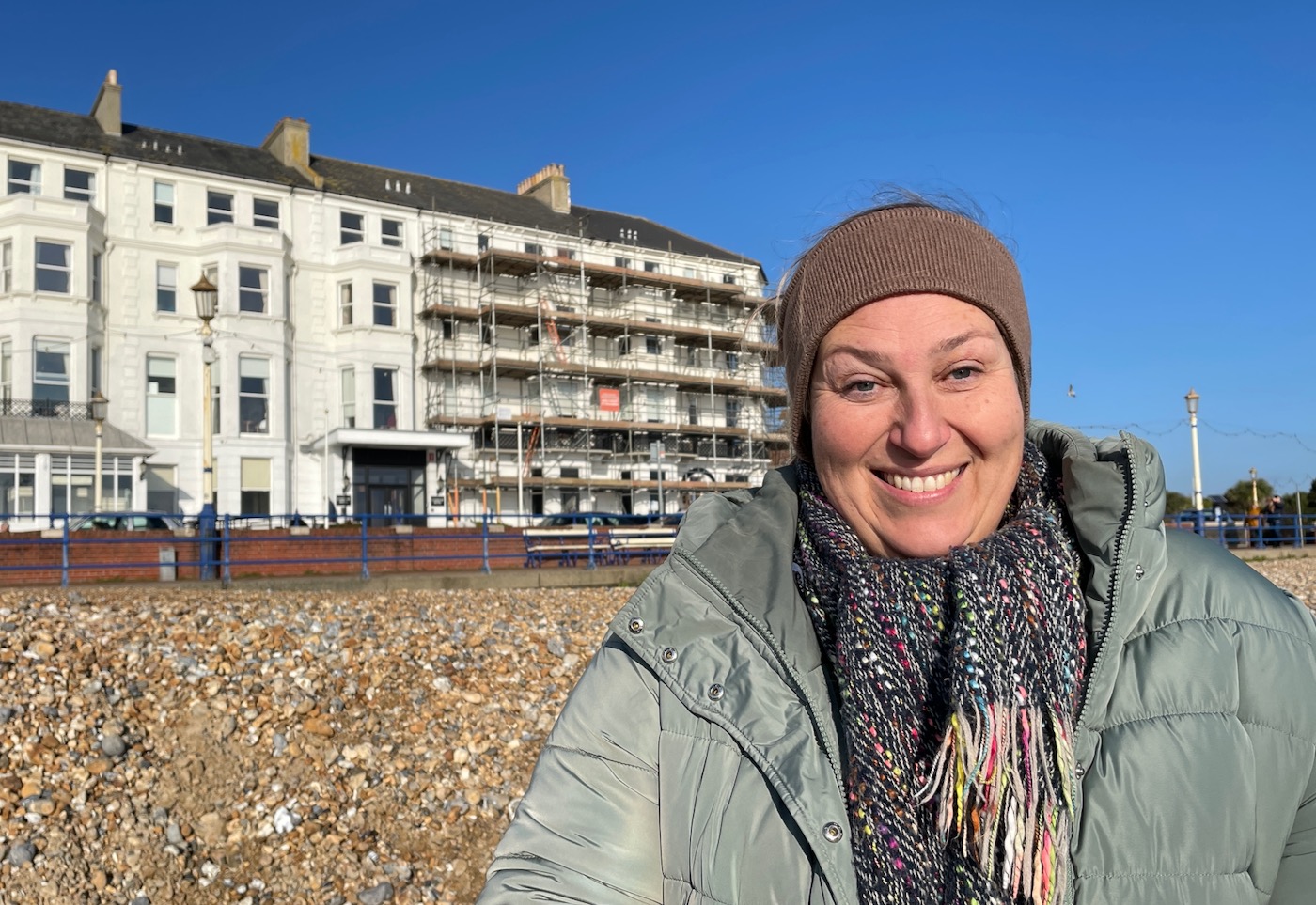
Catherine Hodson, 49, (above) chooses not to use a wetsuit and goes in for about 15 to 20 minutes in winter. In summer, she has swum from the Langham beach to Holywell in the west and back, about four miles – with a stop on the beach for a snack.
Catherine, capital projects manager for Cats Protection, moved from Yorkshire a few years ago and gave up horse-riding.
She was looking for another activity to fill the gap. “I was watching sea swimmers one day and thought I would love to have a go. The others have taught me so much about tides and how to look after yourself,” she said.
“The camaraderie is fantastic. Everyone is so supportive and friendly.”
After a long post-swim chat and plenty of banter, the swimmers start to disperse, saying: "See you tomorrow!"
Yes, they did it all over again on Sunday.
SAFETY ADVICE ON OPEN WATER SWIMMING FROM THE RNLI:
- Be prepared. Check the weather and tides, choose your spot, go with a buddy, have the right equipment.
- If in doubt, don’t go out. No matter how much preparation you do, or how experienced you are, if a swim doesn’t feel right there is no shame in getting out of the water straight away, or not entering.
- Make sure you acclimatise to avoid cold water shock.
- Be seen. Wear a bright coloured swim hat and take a tow float.
- Stay within your depth.
- Float to live.
- Call 999 or 112 and ask for the coastguard in an emergency.
:: This type of genuine journalism - interviewing, research and asking questions - takes a lot of time: copying PR handouts and presenting them as 'news' takes seconds but is not journalism. Please support me – it’s free to read but not free to produce. One-off donations are here or become a member here for the price of a coffee just once a month. Reader support is vital for the survival of the Eastbourne Reporter as a trusted source of information.



